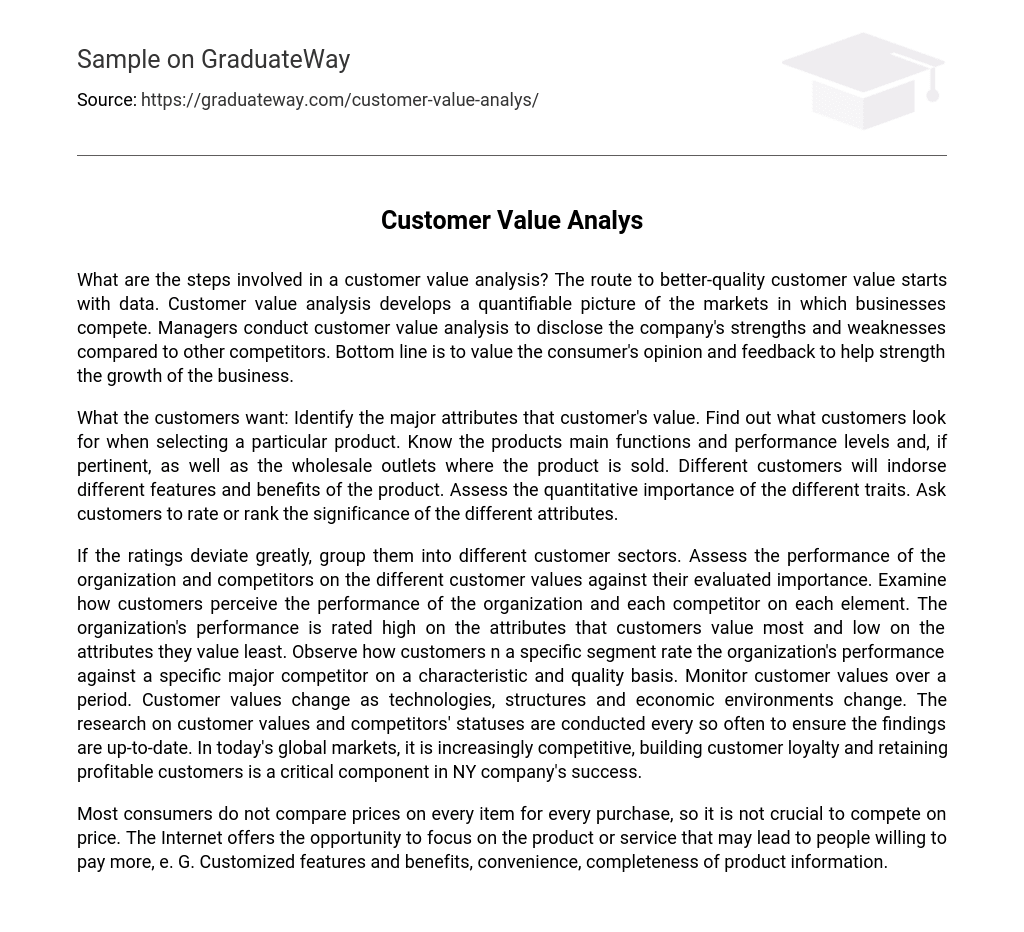What are the steps involved in a customer value analysis? The route to better-quality customer value starts with data. Customer value analysis develops a quantifiable picture of the markets in which businesses compete. Managers conduct customer value analysis to disclose the company’s strengths and weaknesses compared to other competitors. Bottom line is to value the consumer’s opinion and feedback to help strength the growth of the business.
What the customers want: Identify the major attributes that customer’s value. Find out what customers look for when selecting a particular product. Know the products main functions and performance levels and, if pertinent, as well as the wholesale outlets where the product is sold. Different customers will indorse different features and benefits of the product. Assess the quantitative importance of the different traits. Ask customers to rate or rank the significance of the different attributes.
If the ratings deviate greatly, group them into different customer sectors. Assess the performance of the organization and competitors on the different customer values against their evaluated importance. Examine how customers perceive the performance of the organization and each competitor on each element. The organization’s performance is rated high on the attributes that customers value most and low on the attributes they value least. Observe how customers n a specific segment rate the organization’s performance against a specific major competitor on a characteristic and quality basis. Monitor customer values over a period. Customer values change as technologies, structures and economic environments change. The research on customer values and competitors’ statuses are conducted every so often to ensure the findings are up-to-date. In today’s global markets, it is increasingly competitive, building customer loyalty and retaining profitable customers is a critical component in NY company’s success.
Most consumers do not compare prices on every item for every purchase, so it is not crucial to compete on price. The Internet offers the opportunity to focus on the product or service that may lead to people willing to pay more, e. G. Customized features and benefits, convenience, completeness of product information.





